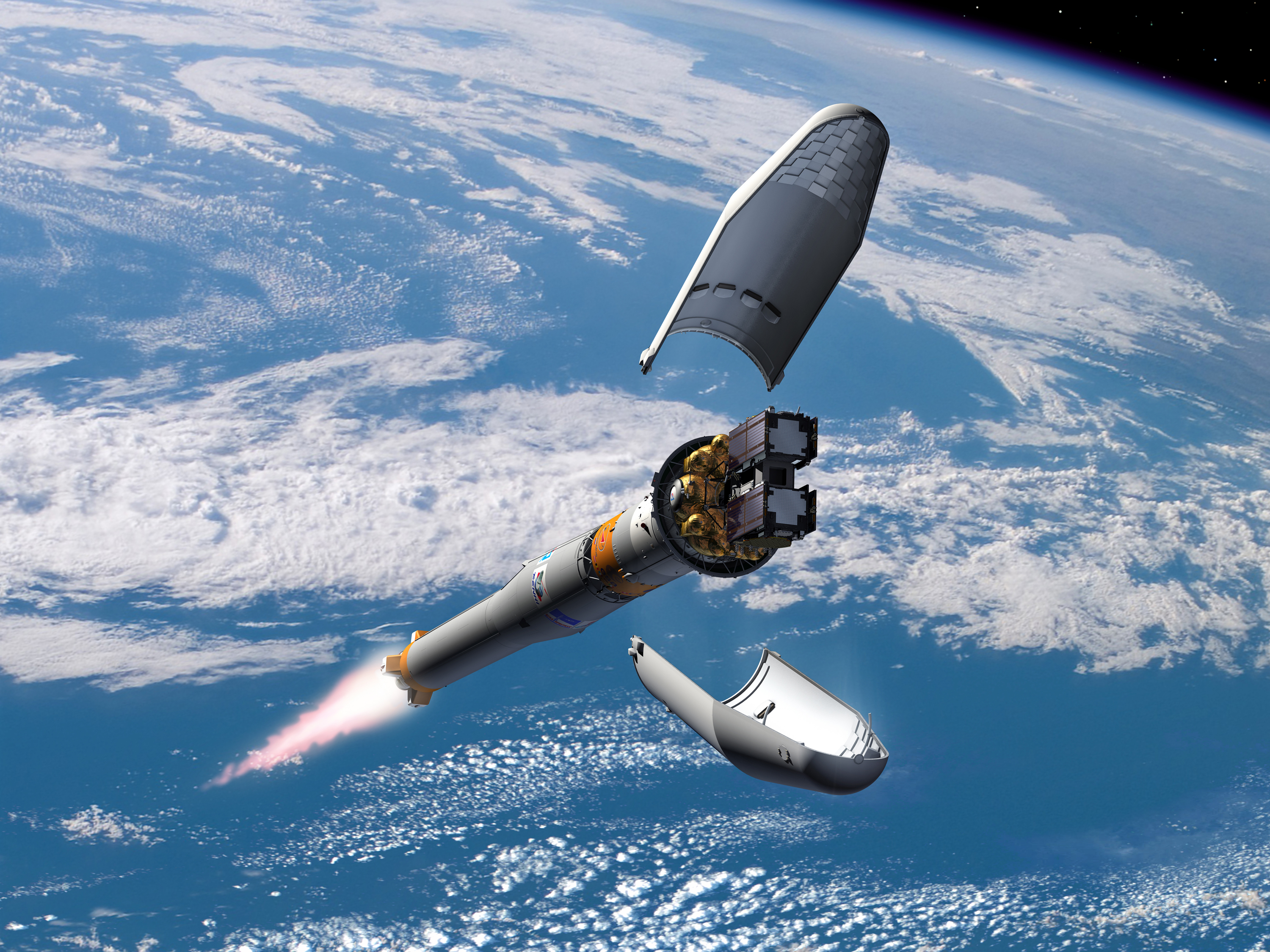November 7th 2012, saw the GNSS.asia consortium reconvene in Beijing to discuss EU-China cooperation on Global Navigation Satellite System (GNSS) initiatives. The primary focus was on updating Chinese industry on the latest developments in GNSS, and exploring opportunities for industrial cooperation between European and Chinese businesses engaged in the downstream sector, which is concerned with the development of applications and multi-constellation receivers. The GNSS.asia workshop was jointly hosted by the European Union Chamber of Commerce in China and the China-Europe GNSS Technology Training and Cooperation Centre (CENC). The GNSS.asia initiative is financed by the European Commission under the EU 7th Framework Programme (FP7) for Research and Technological Development.
“Cooperation is really what we should be focussed on. It’s not about dreaming up research corporations to milk this or that state money.” Rainer Horn, Managing Partner, SpaceTec Capital and coordinator of the GNSS.asia project
The GNSS.asia Workshop, held for the first time in China, was timely as it closely followed the signing of the European Commission-China Cooperation on Space Elements of Consensus earlier in the year. This agreement, between the Ministry of Science and Technology and the European Commission, is ostensibly to help improve cooperation on general space issues between the EU and China. However, as Jean Marie Avezou, First Counsellor of the EU Delegation in China, pointed out in his opening remarks, the signing of this document would also hopefully “encourage Chinese enterprises to join FP7 with European corporations in the space and GNSS field.”
Avezou went on to further underline the importance of the agreement on Space Cooperation signed in the margins of the latest EU-China Summit on 20th September, noting, “At a time when Europe and China are developing their respective satellite navigation systems—Galileo and Beidou—both sides took the commitment to propose ways to improve the compatibility and the interoperability of the two systems to provide better service for the users around the world,” and concluded that this strategic cooperation would provide “mutual benefits for citizens and enterprises.”
These mutual benefits are clear, and span multiple industries. Avezou revealed that the overall impact satellite navigation technology will have on the EU’s economy “is estimated to be EUR 90 billion over the next 20 years”, whereas a report in China Daily said that, according to the Ministry of Science and Technology, the value of the total output of industries connected with navigation services in China could reach “225 billion Yuan by 2012 and 400 billion Yuan by 2020”. The industrial application of GNSS technology covers aviation, fisheries, agriculture and engineering to name just a few, as well as road applications—potentially the largest area for cooperation between Europe and China. The largest area for development, however, appears to be in Location-Based Services (LBS)—services that will be available for owners of digital cameras, MP3 players, laptops and, most importantly, mobile phones. LBS will see a huge investment in indoor navigation services, which has been referred to as the ‘next frontier’ in GNSS.
After some initial delays in the timetable, Galileo, being built by the EU and the European Space Agency (ESA), is now back on track and making good progress. Two satellites were launched on October 12th, 2012, from French Guiana, joining up with an existing pair that have been in orbit since October 2011. This constellation of four is the minimum required to begin the process of checking and validation of the system. If final in-orbit checks are positive a further 14 satellites will be deployed by the end of 2014, which will allow the first services to be provided.
So if the framework is in place and the technology is developing positively, what else is required to keep the project moving forward? “Cooperation is really what we should be focussed on,” says Rainer Horn, “It’s not about dreaming up research corporations to milk this or that state money.” Horn, Managing Partner of SpaceTec Capital and Coordinator of the GNSS.asia project, has been involved “on and off” since 2001. He acted in an advisory role with his previous company, founded specifically to work in space applications in a wider sense, until five and a half years ago. By working with many institutions, start-up and innovative companies SpaceTec have managed to position themselves as one of the key European players specialised in this field.
Prior to the workshop Horn had been keen to make meaningful progress, and afterwards was pleased with the general outcome, emphasising the support and cooperation that they had received from a broad selection of partners and stakeholders, including some new associations, as positives. Although just a start, it appears that the workshop helped to provide a solid platform for future activities. According to Horn, “We already have some proposals from these partners on what to do in the next few months together, so we will now get into deeper dialogue with them. We have had an expression of interest from some Chinese industries wanting to know more about matters, including standardisation, so it is the beginning of something that will last for two years up to the end of the project and hopefully beyond that. We appreciate the support of the European institutions in this effort, and overall I think it was a great start for the project in China.”

Image:ESA
The two Galileo IOV satellites were protected during their launch by a launch fairing, which was ejected once Soyuz had
passed most of the way through the Earth’s atmosphere
Dave Barrett, GNSS Specialist and advisor to GNSS.asia, was similarly encouraged by the level of engagement experienced at the workshop, but was clear to point out that this process is in need of constant attention in order to maintain the level of awareness required to keep the project moving forward. This awareness, he says, needs to penetrate all levels of the market: “The audience here today mostly know about Galileo, so we’ve not been talking to the uninitiated. However, if you go around to some of the trade shows and talk to some of the lower-level, mass manufacturers, people that are doing small-level applications, they’re not really aware. So these are the people that we need to bring into the sphere of awareness, so that they can look at how they can improve their applications and see whether they should upgrade their receivers as time goes on. It’s a constant marketing exercise, really, to keep the awareness going.”
Barrett explains that as Galileo adds to its constellation, and the services start to come online, its profile will naturally go up. However if Chinese chipset manufacturers are onboard early on – as Barrett points out, most of the receivers will be built in China for the foreseeable future – and are building multi-constellation receivers that include Galileo, as the chipsets reduce in price these receivers will become available to the mass market, “and that’s when we’ll see a big change,” he says. Barrett was part of the Dragonfly project in 2008/2009, which was involved in looking at receiver applications in China.
Most workshop attendees were open to the possibilities for industrial cooperation between Europe and China, with some acknowledging that there is an opportunity not just to make commercial gains, but also to build mutual understanding and openness at the political level. So what’s the next step, and how do we get there? “From my perspective, how can [the] EU and Chinese government communicate with each other more clearly and efficiently? How can EU and Chinese enterprises work more closely and find the right partner? In this case I think the GNSS workshop plays an important role between both sides,” says Niomi Ding, Project Coordinator for Deutsche Telekom, and one of the panellists during the workshop. According to Dr He Hong, Chief Representative for the Beijing Representative Office for Helmholz Association of German Research Centres, there needs to be a “joint call for joint effort; political and financial support with the hope of mutual benefit.”
Barrett took confidence from the meeting and believes that the climate is now right for stepping things up, explaining, “There is a feeling that China needs to cooperate overseas, be it Europe or America—they’re not going to be able to do it all on their own. The political environment between Europe and China seems to be coming around to a situation where that cooperation is going to be viable, so now is a good time to be pursuing it.”
Horn is practical and succinct in his summary, saying, “I think what we need to get down to is, what are the tangible markets? We want to be very pragmatic: we want to achieve a few hands-on cooperations with Chinese industries at different levels, and if we can achieve this we have contributed a lot to the global GNSS initiative.”
Looking towards 2013, EUCCC will be working with CENC to adapt the GNSS.asia questionnaire, provided during the workshop, to identify areas of potential development, and to arrange matchmaking sessions between European and Chinese companies. The aim is to bring together five European and five Chinese companies to give short presentations and take part in bilateral discussions. Quarterly update meetings will also be held between CENC and GNSS.asia to ensure dialogue remains open and progressive.
By Carl Hayward



Recent Comments